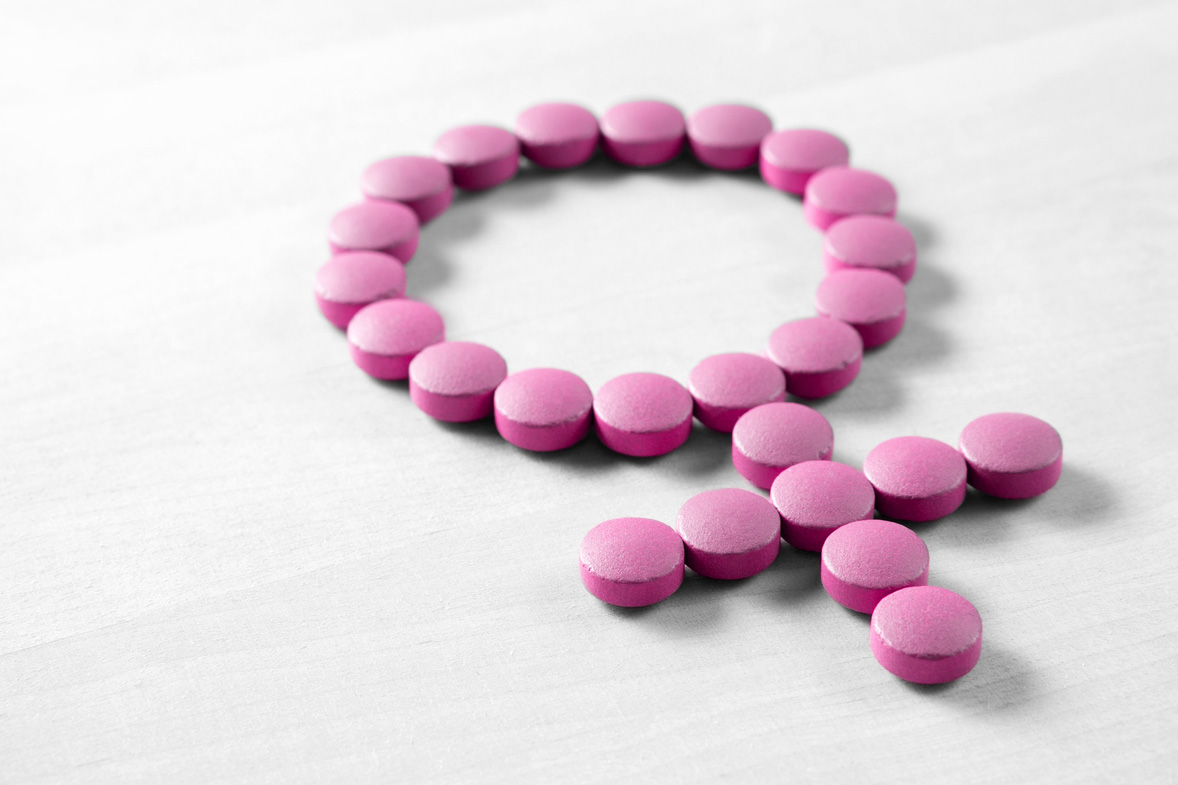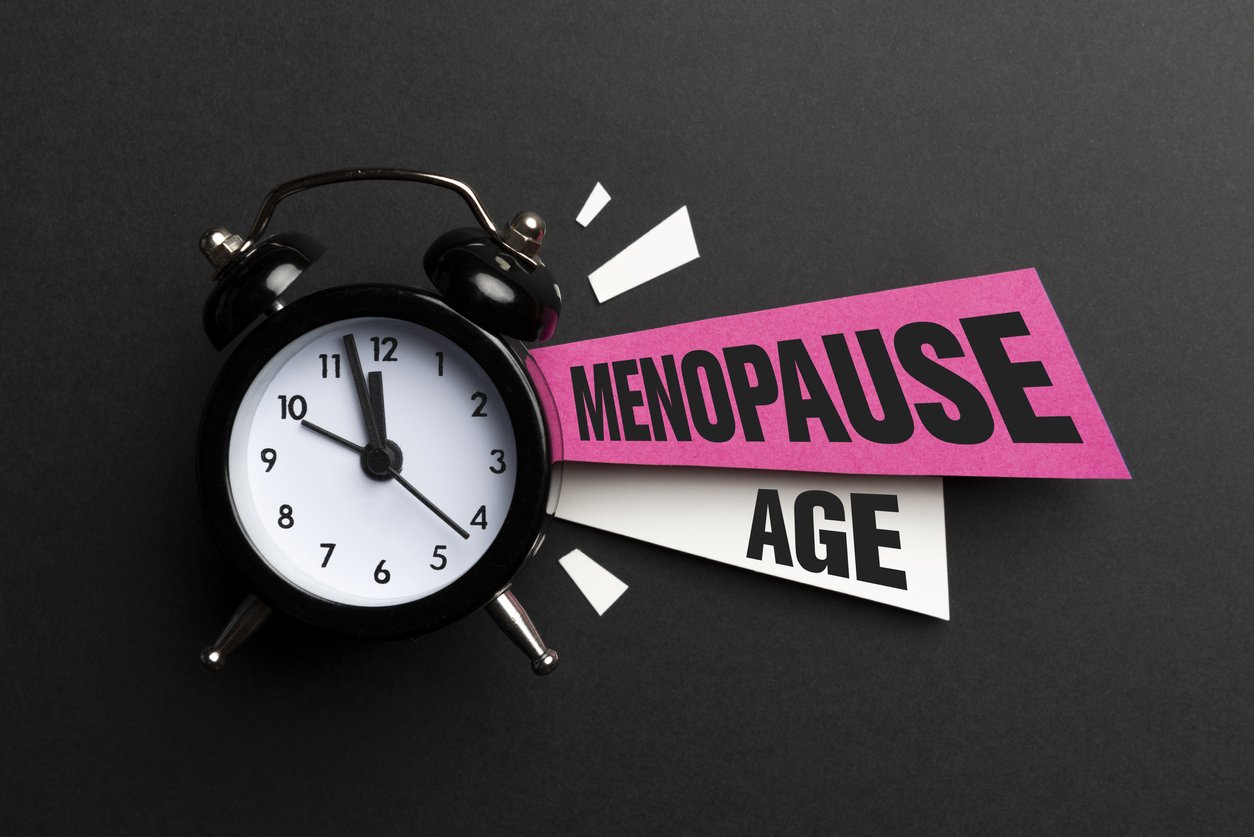Perimenopause refers to the years before the menopause starts, as your ovaries start to slow down the production of hormones. Many women start experiencing menopause symptoms during these years, which can begin even 10 years before the menopause starts.
Find out about the symptoms of Perimenopause
If the perimenopause symptoms are causing issues for you in your daily life, there are many treatments available. It’s important to talk with your doctor about your options and the risk or benefits involved and review them with your doctor regularly.
Perimenopause Treatments
Hormone Therapy
Systemic estrogen therapy is the most effective option when it comes to treating hot flashes and night sweats that come with perimenopause. Talk to your doctor about your options, as the dose may depend on your personal and family medical history. If you still have your uterus, then you’ll need progestin in addition to the estrogen. Systematic estrogen therapy comes in pill, patch, gel or cream form.
Vaginal Estrogen
Vaginal dryness can not only be painful but can alter affect your intimate relationship with your partner. Estrogen can be prescribed to apply directly to your vagina via a vaginal tablet, ring or cream and is absorbed into the tissue. It can also help with some urinary symptoms.
Antidepressants
Certain antidepressants in the SSRI category can help reduce hot flashes. If you can’t take estrogen due for health reasons then this may be prescribed, or for those who have a mood disorder or problem with depression.
Gabapentin (Neurontin)
This drug that treats seizures but also helps with hot flashes – it is often prescribed if you can’t take estrogen or for women prone to getting migraines.
Changes in Lifestyle To Improve Perimenopause Symptoms
Healthy lifestyle choices can make a massive difference when it comes to perimenopause.
Ease Vaginal Discomfort
Water-based vaginal lubricants and moisturisers are a great solution for problems with a dry vagina. Be careful with products that contain glycerin which can cause problems if you have sensitive skin. Also, staying sexually active increases blood flow to the vagina which also helps!
Eat Healthy
A healthy diet is far more important in midlife. A diet rich in low-fat, high fibre foods including fruits, vegetables and whole grains, and calcium-rich food all help in midlife. Avoid alcohol and caffeine if they seem to trigger hot flashes. It’s important to ask your doctor if you need a calcium or vitamin d supplement if you are not getting enough in your diet.
Exercise
Regular activity improves your sleep, elevates your mood and helps with midlife weight gain. Try to exercise for 30 minutes on most days of the week. Doing this will also help with strength bone density.
Sleep
Getting enough sleep makes all our symptoms worse. Try to be consistent and avoid too much caffeine and alcohol which can cause problems with sleep patterns.
Stress Reduction
Meditation and yoga can help reduce stress and keep you relaxed which is important during the transition into menopause. Trying acupuncture can also help relax you and there is some evidence that it helps with hot flashes.
Alternative Medicine for Perimenopause
For people who don’t want to take traditional medicine, there are options in alternative medicine. However research into the safety and effectiveness of these is lacking, so proceed with caution when taking these. Its always best to talk to your doctor for the latest information on all of the below.
Black Cohosh
This is a herbal extract that is used to treat hot flashes and other symptoms, but there is not enough evidence to support its use or be sure of the risks. Old studies have shown that black cohosh is harmful to the liver, but recent studies have found no evidence of this. If you are at risk of breast cancer, its best to stay away because they are not sure that it’s safe.
Isoflavone Supplements
Although there are some studies that say they reduce menopause symptoms, there are also studies that show that it increases the risk of breast cancer.
Bioidentical Hormones
Bioidentical hormones are supposed to be chemically identical to those your body produces. They aren’t regulated by the FDA so the risk could vary, and there isn’t any evidence that they are safer or more effective than normal hormone therapy.
Dehydroepiandrosterone (DHEA)
This natural steroid produced by your adrenal gland is available as a dietary supplement and has been used by some to improve sexual interest. But evidence on its effectiveness is mixed, and there are some concerns about possible harmful effects.
Acupuncture
As well as helping reduce stress, there is some evidence that it decreases hot flashes. Although it isn’t inconclusive, the studies have been promising.
Have you downloaded our Menopause Guide? Tips, treatments and answers to all your questions.






